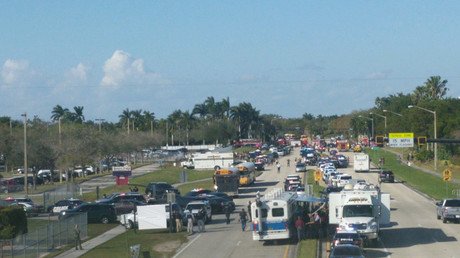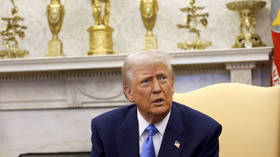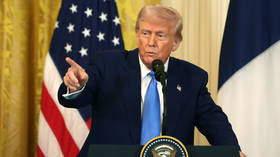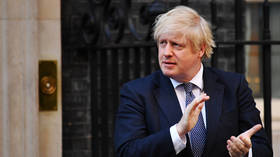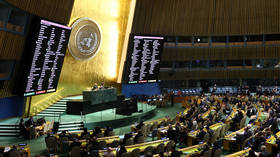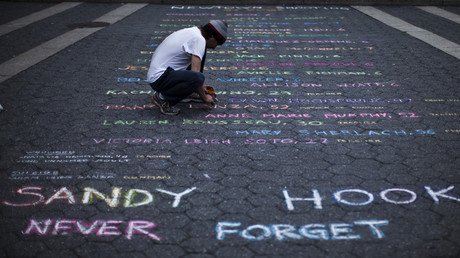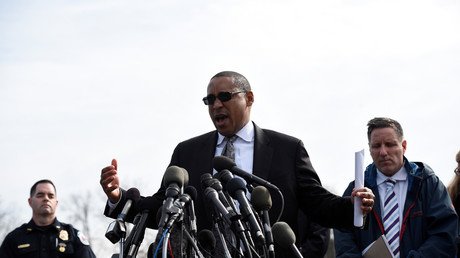Florida school shooting: ‘A lot of nuttiness in US about how guns make you safer’
As the US reels from another mass shooting, RT was told “the prevalence of violence” at the state level is a factor contributing to these tragic events. With “millions” of guns out there, the situation is unlikely to change.
Discussions about gun control, mental health, and law enforcement are once again dominating public discourse in the US after Wednesday’s mass shooting in Parkland, Florida – which was recently ranked the 15th safest city in the country. Investigative journalist Rick Sterling told RT that “the prevalence of violence at the state level” and a culture of militarism in the United States may be a factor contributing to the growing list of school shootings.
Noting that the Trump administration increased the Pentagon’s budget by $80 billion, Sterling speculated: “Just imagine if that 80 billion was put to positive uses – using it for improving social needs and resolving conflict, instead of promoting violence and military solutions. We might see a dramatic decline in these kinds of incidents.”
Imposing tighter controls and regulations on the millions of guns currently in circulation in the United States would be a good first step towards deterring mass shootings, Dave Lindorff, an investigative journalist, told RT. “There’s over 300 million guns – that’s enough for every person in the United States to have a gun. It’s insane, and you know, we license cars. You can’t just get in a car and drive it. But you can get a gun and shoot it. You don’t need any training, you don’t need any licensing,” said Lindorff. “In a lot of states now you can carry them undercover, legally. There’s a lot of nuttiness in this country about how guns make you safer – and the evidence is all to the contrary.”
READ MORE:Florida school shooting marks the 18th in less than 7 weeks (MAP)
Tighe Barry, an activist with the anti-war group Code Pink, made a similar argument: “Why do we regulate our cars more than we regulate these weapons of mass destruction in our own communities?”
“You’ve got 17 deaths today, a recent killing at the Texas Baptist Church, 26, Las Vegas, 58, Pulse nightclub, 49, Newtown, 27, San Bernardino, 19, Charleston, 9, Aurora, Colorado, [12], Fort Hood, 13 – these go on and on and on and it’s always with the same weapon,” Barry said during an interview with RT.
“This is a crazy American system. It’s gotta be stopped, and it’s gotta be stopped right now if we want to save our kids,” he added.
But not everyone is convinced that stricter gun laws are the answer. “Even if tomorrow the US were to say ‘no more guns, they’re all completely banned,’ you still have millions of guns throughout the United States that the wrong person could get their hands on. So the most important thing [to remember] right now is that violence like this can happen, inevitably, regardless of gun control laws,” Jennifer Breedon, an attorney specializing in foreign policy, international law, and religious terrorism, told RT.
Steve Malzberg, a conservative TV and radio host, went one step further – arguing that the best way to prevent “bad guys” from hurting people with guns is to ensure that “good guys” can legally access and carry firearms.
"We have 18,000 gun laws in this country. Chicago has some of the most prohibitive, strictest gun laws in the country, and it’s a disaster area where people get shot all the time by bad guys,” said Malzberg. “Not letting good guys have guns is not the answer. Letting good guys have guns is the answer. The bad guys will always have the guns,” he told RT.
The mass shooting also reignited debate about mental health in the country. “It’s not because people are mentally ill – we gotta stop thinking about that. This is because [of] the availability of assault weapons, availability of extended magazines, and machinery to make them into full autos if they want,” Tighe Barry said.
Dominick Izzo, a former police officer, urged the media to focus on the individual – not guns. “This is an ultimate cry for attention,” Izzo told RT, “and I’d like to see the media for the first time not look at this as a gun issue and shy away from the inanimate object or start to look away from why or how these individuals are getting the guns, and start looking at the intent behind it. Why are they doing this? What’s the mental health of this person? What’s their personal, individual issue?”
Think your friends would be interested? Share this story!

